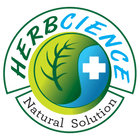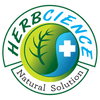Are you worried about the personal hygiene of your intimate area? Not sure whom to discuss it? Maybe your sister or daughter or mother or maybe your friend also is worried about the hygiene of her intimate area. Then this blog is for you. Why not explore the don’ts and do’s to your intimate and educate your loved one.
Here we shall discuss what is intimate area hygiene, what is intimate wash, what are the don’t to the intimate area, why is it important to avoid chemicals in your intimate wash, what are safe alternative does not cause health hazards, what are the safe herbs for intimate care, what are the safe alternatives for intimate care, why choose Herbcience Hygiene intimate wash?
Maintaining hygiene of private intimate body parts is termed intimate Hygiene. While it may not be the most pleasant topic, it is an important regime for staying healthy. The intimate area can hold bacteria and fungal infections. As these infectious bacteria can spread quickly to other parts of your body. It is very vital and fatal to take care of intimate parts.
What is an intimate wash?
Intimate wash is a formulated solution, mainly used in intimate areas, to maintain the pH in intimate areas and neutralize the infectious action of bacteria and fungi in the intimate area.
Intimate Wash is the solution designed to cleanse the intimate area of women. Though we neglect to discuss this topic with our friends or relatives. It is always wise to be aware of your body and be well aware of intimate hygiene.
What are the don’t in an intimate area?
Most women consider using fragrant bathing soap or moisturizing body wash in intimate areas will remove all infections in the intimate areas. Which is actually damaging the intimate areas, because the skin around the intimate area is more sensitive than your normal skin.
Therefore, it needs special care. The vaginal universe is normally acidic, with a pH ranging between 3.5 to 4.5. Normally the pH of bathing soaps or body wash is greater than 4.5. Using a bathing soap for an intimate area could disturb the pH level of the vagina. Thus leading to vaginal issues like viganal irritation, itching, dryness, or vaginal infection.
How to choose an herbal intimate wash?
Generally, herbs are gentle and very mild on the skin. Usage of herbs has the least known side effects. the Phyto- Constituents like Tannins, Beta-sitosterol, and Essential oil have Antibacterial, Antimicrobial, and Anti-fungal properties; also, they do not alter the vaginal pH. Therefore it is considered that herbs will be very mild in intimate areas
Why is it important to avoid chemicals in the intimate wash?
The commercially available Intimate washes are formulated with a lot of chemicals in the form of altered pH or in the form of preservatives or saponins. This leads to harmful effects like vaginal dryness or any allergic reactions causing redness and irritation in the vagina.
Hence it is mandatory for you to understand or know the formulation ingredients. Let us list out a few chemicals that are generally used in an intimate wash in the form of preservatives or saponins and list out the health hazards caused due to their use.
|
Chemical |
Reason For Adding Chemical |
Organ System Affected |
|
Artificial Fragrance1 |
To achieve a strong and long-lasting fragrance.
|
Irritation & redness
|
|
Artificial Color 2 |
To achieve fancy and long-lasting color.
|
Skin, Irritation & redness |
|
Butylated Compounds 3
|
Used for preservation |
Reproductive, Impairment, Endocrine system Impairment Organ toxicity |
|
Hydroquinone 4
|
Skin lightening agent |
skin respiratory tract irritation |
|
Sodium Lauryl Sulphate 5
|
Skin lightening agent |
skin respiratory tract irritation |
|
Mineral oil 6 |
Base oil |
Skin |
|
Parabens 7 |
Used for preservation |
Reproductive Impairment, Endocrine system Impairment Organ toxicity |
|
Alcohol 8 |
Used for preservation |
Reproductive Impairment, Endocrine system Impairment Organ toxicity |
Therefore it is wise to use herbal Intimate wash in place of synthetically formulated intimate wash, to keep away from life costing health hazards.
What Are the Safe Natural Alternative Ingredients For Intimate Wash?
Sulfate-Free Cleansing Agent- Coco glucoside, Citric acid, Sodium gluconate, and Benzoic acid
What are the safe herbs for intimate care?
Herbs like ela9, jambu, usheera10, Dhataki11, green tea12, and yava are known to maintain the pH of the intimate area along with neutralizing the infectious action of bacteria and fungi.
How do herbs help the intimate area?
The Phyto components in herbs like Ela, Jambu, Dhataki, and Tea Tree oil are tannins, Beta-sitosterol, and Oleoresins are known for Anti-Microbial, Anti- Bacterial, Anti-Fungal properties. These herbs mainly concentrate on keeping any kind of bacterial or fungal infections at bay.
These herbs also keep a check on foul odor and white discharge. Tannins, Beta-sitosterol, and Oleoresins are known for Anti-Microbial, Anti- Bacterial, and Anti-Fungal properties. Cineole and essential oil present in this herb are known for the aroma to beat the unpleasant odor of the vagina. Saponins in the herbs help in cleansing. pH levels are maintained by citric acid and palmitic acid in the herbs to keep bacterial actions at bay
What are the safe alternatives?
Herbal intimate wash: Herbcience Hygiene Intimate Wash
Benefits
- Prevents itching and irritation
- Prevents disagreeable odor
- Maintains optimal pH
Why choose Herbcience?
Herbcience is a 100% transparent brand and all the products are developed by doctors, with the fresh extractions of herbs. They are 100% Natural certified by ECOCERT - COSMOS Natural, a European Standard, AYUSH, Govt. of India, and compliant with MADE SAFE, USA.
Conclusion:
Most women discuss among friends and relatives the latest skin product and hair care products. But no one discusses intimate hygiene. Since it is very important to maintain intimate hygiene in order to prevent various infections by micro-organisms, bacteria, and fungi.
Intimate hygiene wash available commercially is formulated with chemicals in form of preservatives or saponins like Triclosan, Ammonium Lauryl Sulfate, Parabens, etc. But these can alter the vaginal pH and disturb the vaginal universe.
Thus, it is best to stop the usage of chemical solutions and switch to Natural products. To resolve these issues, Herbcience has come up with Natural solutions from herbs suitable for intimate areas under their Personal care products. Consider the usage of Herbceince Hygiene Intimate wash for your intimate areas.
Reference:
- Artificial-Fragrance: https://www.safecosmetics.org/?s=Artificial+fragrance
- Artificial Color: https://www.safecosmetics.org/?s=Artificial+color
- Butylated-Compounds: https://www.safecosmetics.org/get-the-facts/chemicals-of-concern/butylated-compounds/
- Hydroquinone: https://www.safecosmetics.org/?s=Hydroquinone
- Sodium Lauryl Sulphate: https://www.healthline.com/health/beauty-skin-care/what-is-sodium-lauryl-sulfate
- Mineral-Oil: https://www.verywellhealth.com/what-is-mineral-oil-5081633
- Parabens: https://www.healthline.com/health/methylparaben
- Alcohol: https://en.wikipedia.org/wiki/Rubbing_alcohol
- Ela: https://www.ncbi.nlm.nih.gov/pmc/articles/PMC5775110/
- Dhataki:https://www.sdach.ac.in/dravyaguna-vigyan-blogs/dhataki/
- Tea Tree oil: https://www.healthline.com/health/tea-tree-oil-for-yeast-infection
Frequently asked questions
1. Are there natural herbal intimate washes?
Yes, Herbcience has formulated the natural herb-based intimate wash called Herbceince Hygiene Intimate wash, which is completely free from chemicals. Even the preservatives used are herbal-based
2. I feel uneasy in my intimate area after using public washrooms, is there a remedy?
Yes, regular use of Herbceince Hygiene Intimate wash will neutralize any microorganism or bacteria and fungal action and treat your uneasiness.
3. What can I do about my foul odor in an intimate area?
First rule out any underlying health concerns. Visit the nearest gynecologist.



